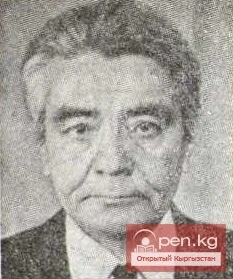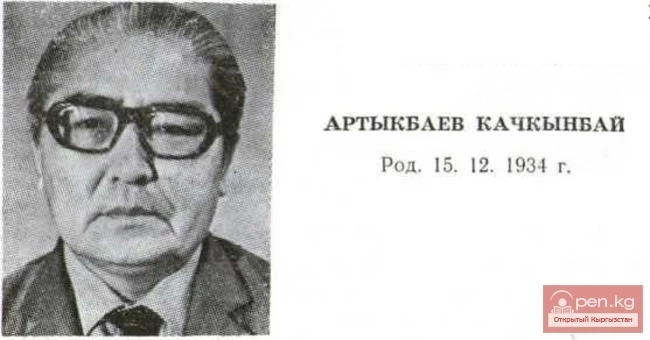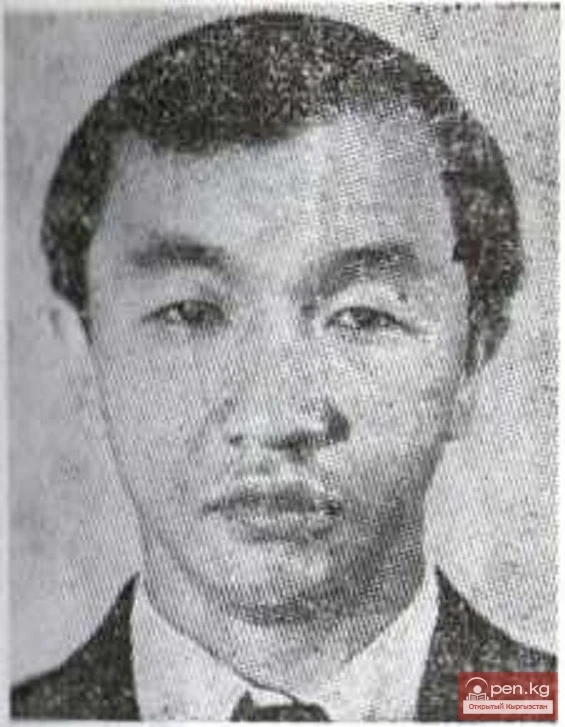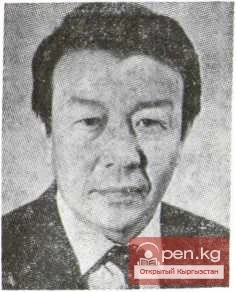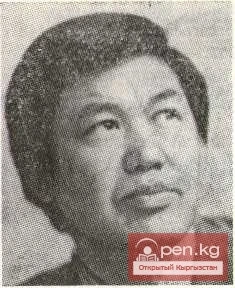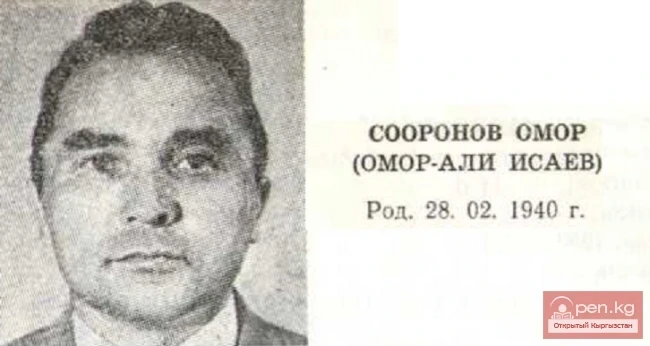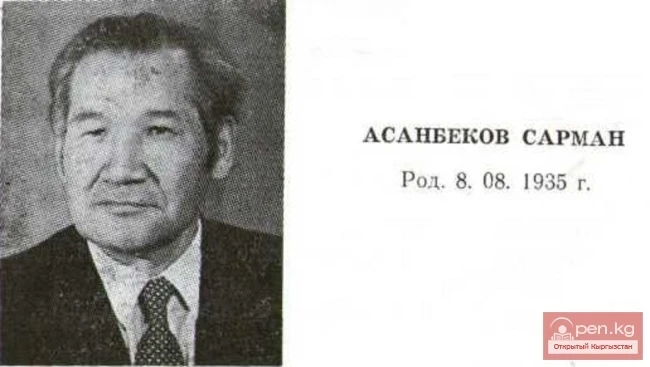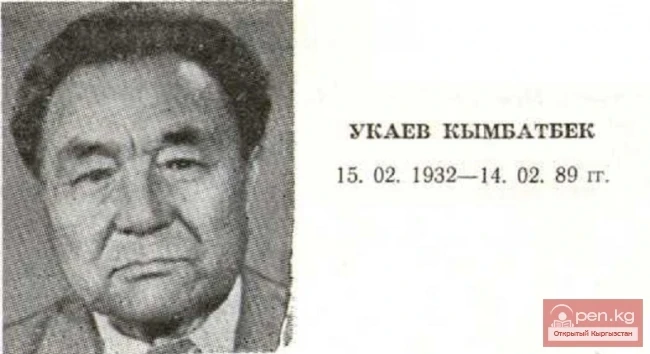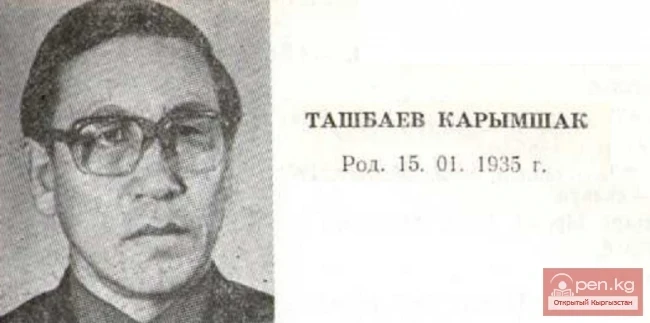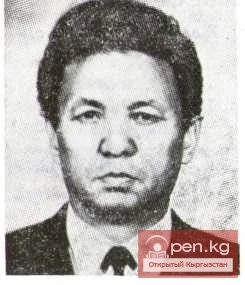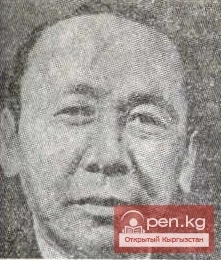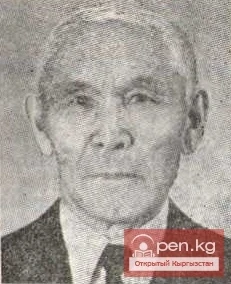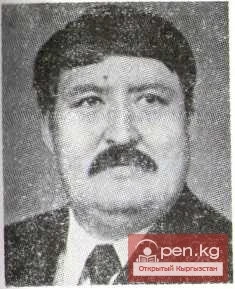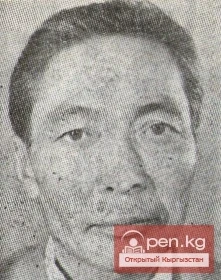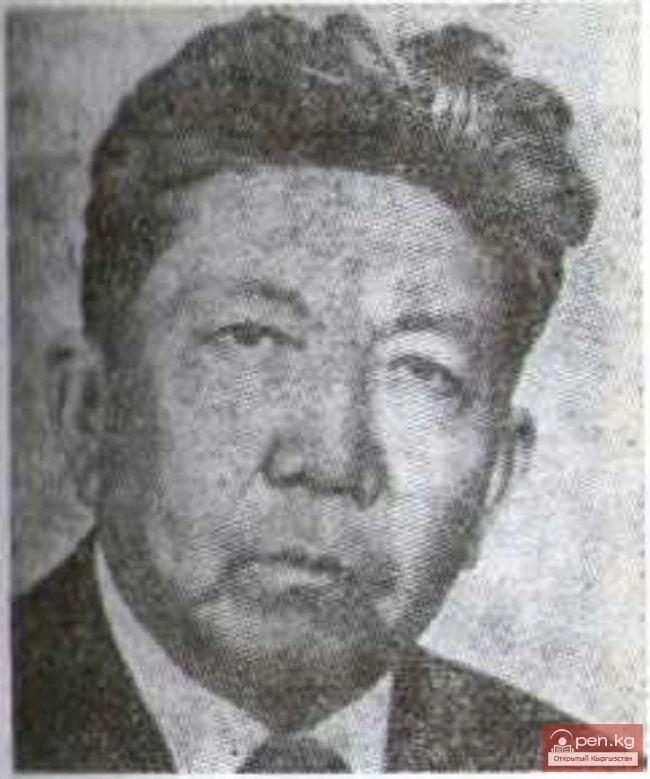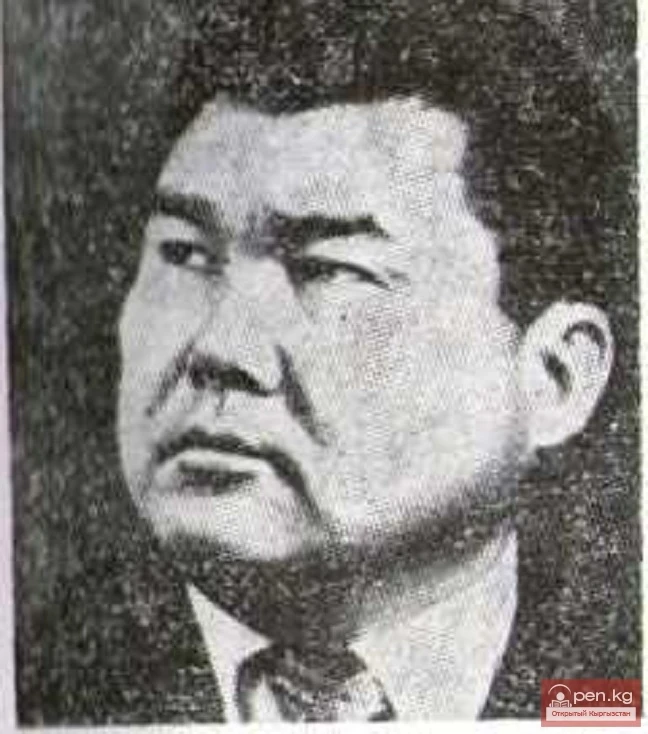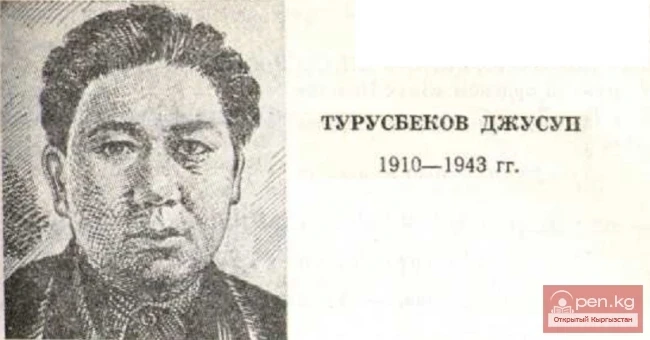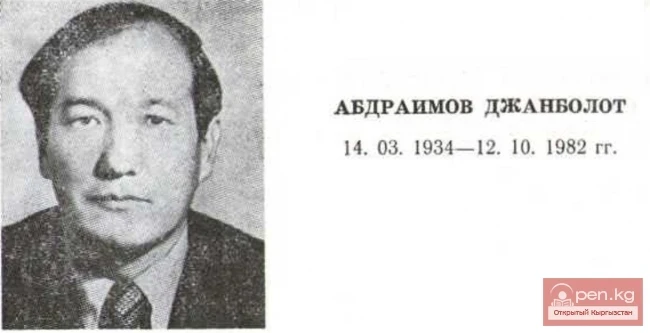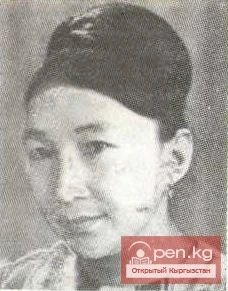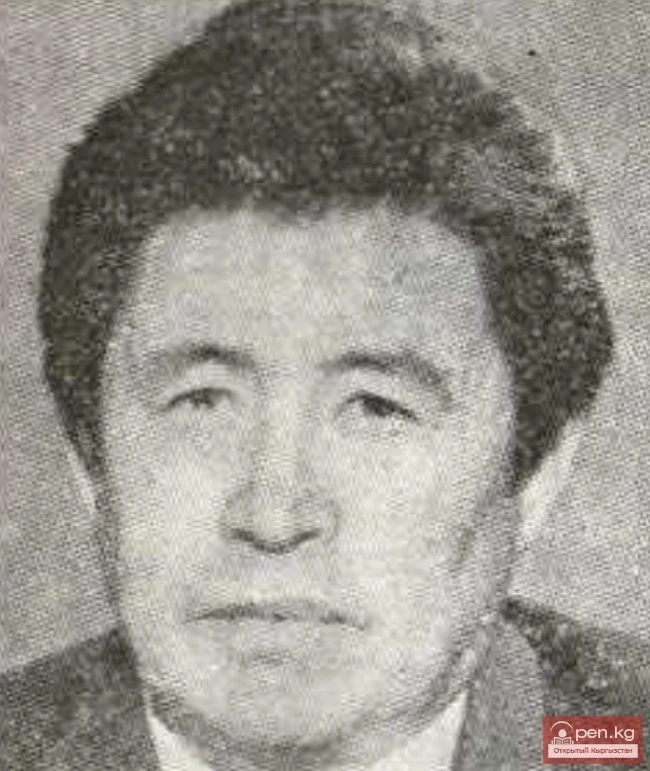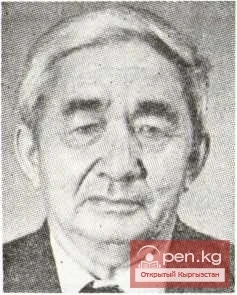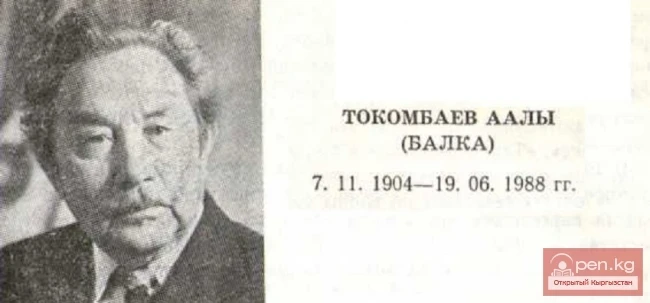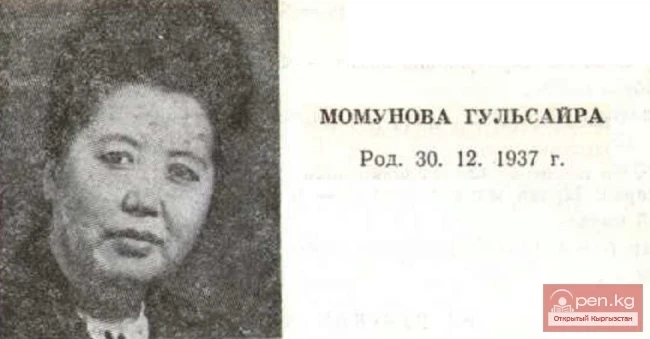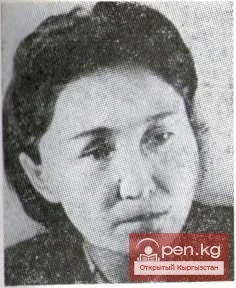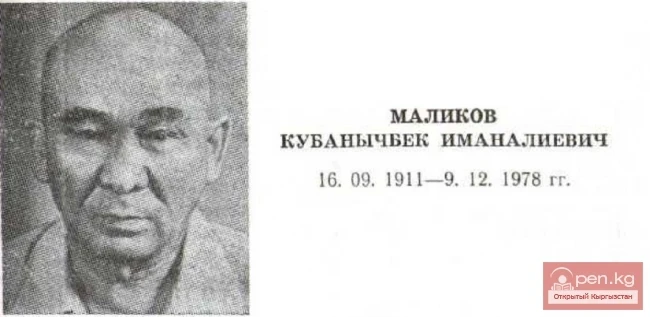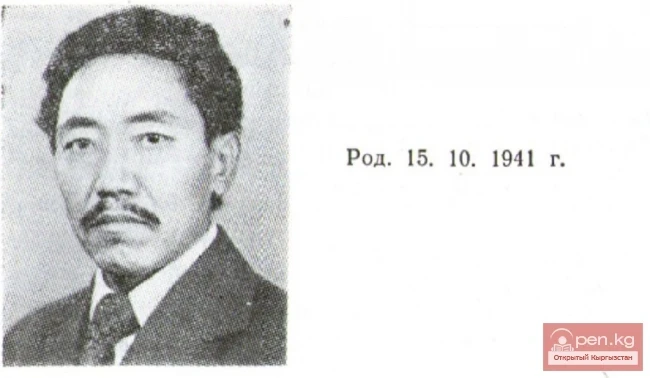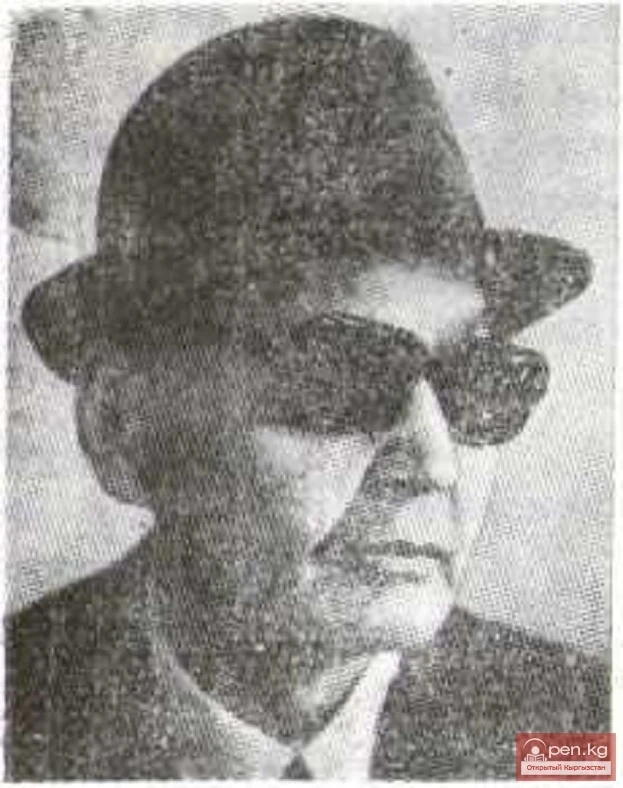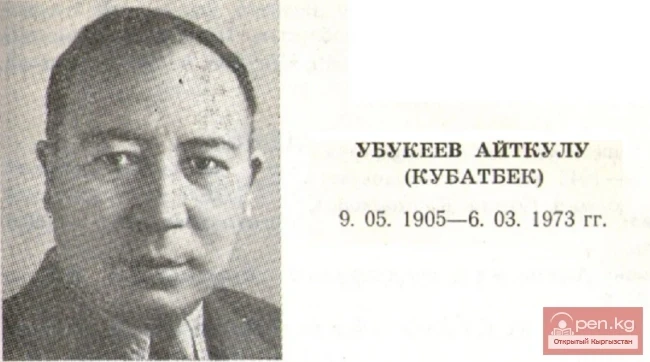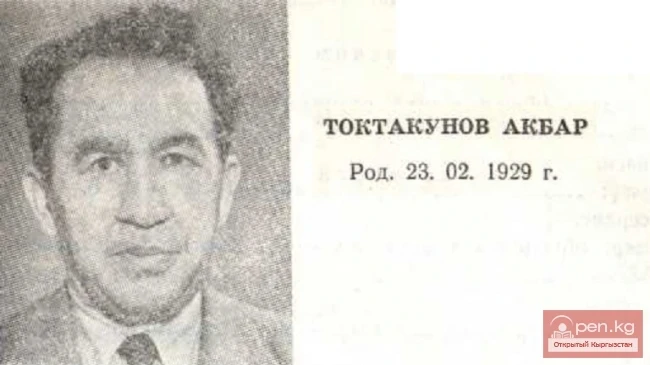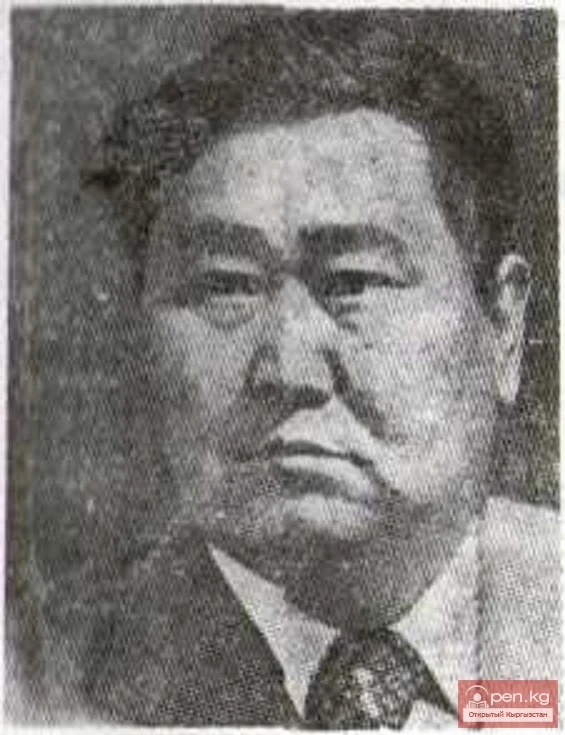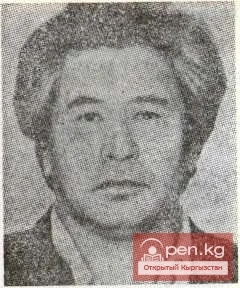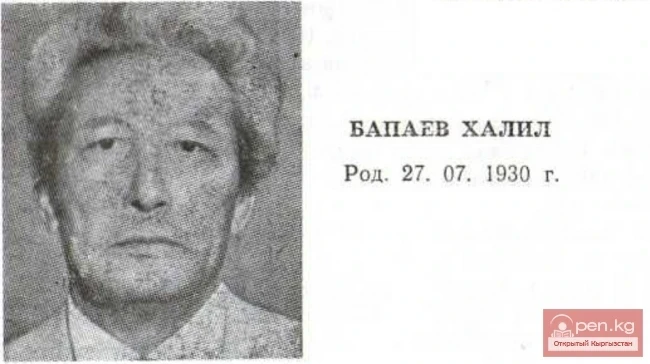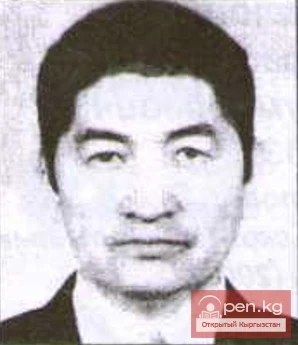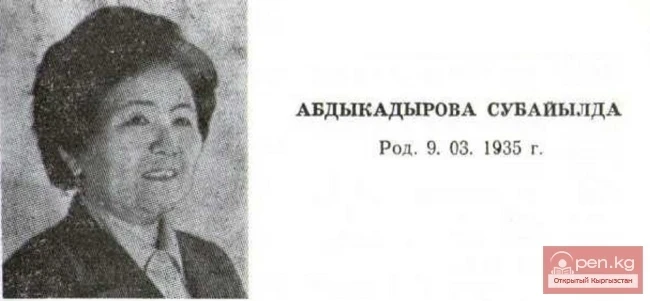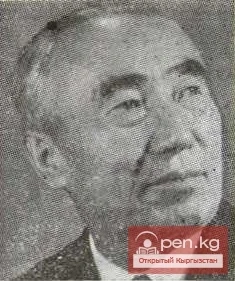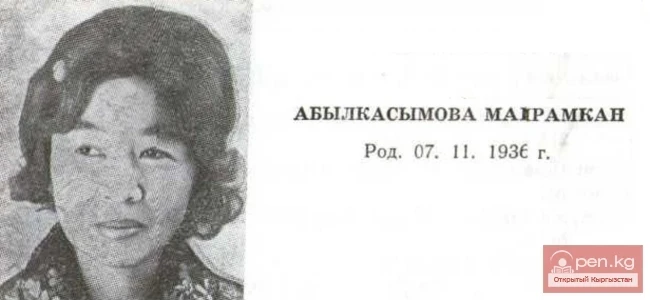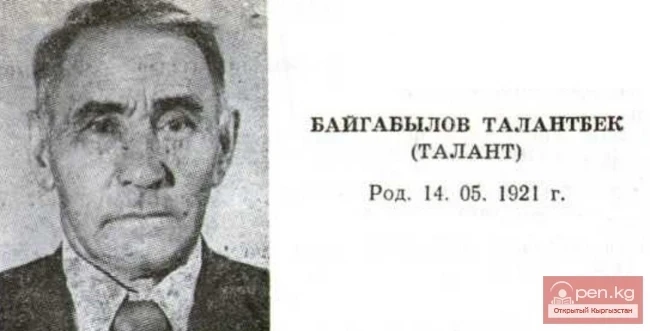
Mukhamed Dogdurov (1906-1968) was born in the village of Burkut in the Ton district of the Issyk-Kul region. He studied at the Tyup Agricultural Technical School. He began his creative activities early. While studying at the technical school, he wrote various materials about local and technical school life and sent them to republican publications: to the editorial offices of the newspapers "Kyzyl Kyrgyzstan" and "Leninchil Zhas." Many of them were published, which determined his future fate. After graduating from the technical school, M. Dogdurov moved to Pishpek and became one of the first writers and journalists, starting to write literary-critical articles. His first literary work was the article "On Lenin," written about the first collection of poems by Aaly Tokombaev of the same name, which was published in the newspaper "Erkin-Too" on April 14, 1927. At that time, the author was only 21 years old. M. Dogdurov's article "On the Organization of Writers and Artistic Literature," published in the same newspaper in the late 1920s, also attracted the attention of the creative community.
Much was gained by the young talented man during his studies in 1928-1929 at the Communist Party School in Tver, Russia. After returning to Kyrgyzstan, he fully dedicated himself to journalistic and publishing activities. He worked as an editor at Kirgosizdat and the magazine "Chabyl." In 1934, he moved to the editorial office of the newspaper "Kyzyl Kyrgyzstan" and worked there as the head of the department, deputy editor, and for a long time as the editor of this main newspaper of the republic until 1944. His selfless work as the responsible editor of the republican party newspaper during the Great Patriotic War was especially highly valued. In 1944, M. Dogdurov was appointed chairman of the Kyrgyzstan trade union organization, where he worked until 1958. He then returned to journalistic activities and headed the theoretical and political magazine "Communist" until 1968, i.e., until the end of his life.
M. Dogdurov is the author of the books of essays and journalistic articles "In the Countries of Asia" (1958) and "Bright Path" (1969), and he translated Maxim Gorky's novel "Mother" and the story "My Universities" into Kyrgyz. He also engaged in significant public work. From 1958 to 1961, he was the chairman of the presidium of the Society of Friendship and Cultural Relations with Foreign Countries, and from 1962 to 1968, he was the chairman of the republican committee for solidarity with the countries of Asia and Africa.
Among Kyrgyz women journalists, Kurman Kydyrbaeva (1916-2003) worked fruitfully in the republic's press for many years. She was born in 1916 in the village of Kyzyl-Dyikan in the Jety-Oguz district of the Issyk-Kul region. In 1932, she graduated from the pedagogical technical school, and then took stenography courses. From 1935 to 1939, she worked as a literary employee and head of the department at the editorial office of the newspaper "Kyzyl Kyrgyzstan." In 1940, she was appointed editor of the newspaper "Kyrgyzstan Pioneri," and in 1941, she became the editor of the newspaper "Leninchil Zhas." From 1941 to 1944, she worked as the deputy chairman of the republican radio committee. From 1945 to 1950, she was the responsible secretary of the editorial office of the magazine "Communist."
From 1950 to 1953, K. Kydyrbaeva studied at the Higher Party School in Moscow, and after graduating, from 1953 to 1960, she worked as the chief editor of the magazine "Communist," and from 1960 to 1971, she was the editor of the magazine "Kyrgyzstan Aialdary."
K. Kydyrbaeva worked particularly fruitfully during the Great Patriotic War, serving as a kind of link between the front and the rear. Writers and journalists who knew her and worked with her in the editorial offices before the war regularly wrote to her from the front with stories about military events, the feats of Kyrgyzstani people on the front lines, and inquired about the situation in the rear, as well as about their acquaintances and relatives.
The journalist systematically published these letters and her responses in the pages of newspapers and magazines, inspiring soldiers and workers in the rear to military and labor feats. In 1995, in honor of the 50th anniversary of the victory over fascism, these letters from the front were published as a separate book.
Throughout her long career in the press and on the radio of the republic, K. Kydyrbaeva published and broadcast numerous essays and journalistic articles. If they were to be collected and published today, they would fill several volumes of collections.
The people's poet of Kyrgyzstan Temirkul Umetaliev (1908-1991) closely linked his entire creative life with journalism. He was born in the wintering of Tuy-Dzhar in what is now the Aksy district of the Jalal-Abad region. He studied at the pedagogical technical school and at short-term courses at the Communist Institute of Journalism named after "Pravda" in Moscow. After his studies, T. Umetaliev worked as a teacher in a school, in party organizations, in the political department of MTS, and then in the editorial offices of several republican newspapers and magazines, including as the editor of the youth newspaper "Leninchil Zhas."
The poet was a participant in the Great Patriotic War. After the victory, returning to his native republic, he remained an active author in all republican newspapers and magazines, as well as in television and radio broadcasts until the end of his life.
He published several collections of journalistic works and translations of poems by Y. Shivaza, V. Mayakovsky, M. Lursun-zade, Y. Kupala, I. Tikhonov, Emmi Siao, and others.
Here is an excerpt from his front-line memories:
“April 1945. Returning from the front line, we saw three officers standing at the edge of the forest. My comrade, Captain Oreshin, looked at them and said:
- There is our officer reserve. Let’s go, maybe we’ll meet some acquaintances. We greeted each other and shook hands. Among the officers, one clearly looked like my countryman. I immediately felt warmer inside.
- Are you Kyrgyz? - I asked.
- Yes, - replied the lieutenant. His face also lit up with joy.
- Where are you from?
- From the Chui Valley, aksakal. Osmonaly Ismankulov.
He was a tall, well-built young man. We stepped aside and began to speak in Kyrgyz. Osmonaly took out and started reading letters about his relatives, showing front-line photos. Suddenly, an envelope fell out of the stack of papers. “To be opened on Victory Day,” I managed to read as I picked it up.
- What is this letter? - I asked curiously.
- I don’t know what is written here. It’s a letter from this girl, - replied Osmonaly and showed a card. On the back, it was written: “Tomas, remember me, Bozhyka.”
- This girl is from Serbia, and Tomas is me, a Kyrgyz, - said the lieutenant, shyly smiling…”
